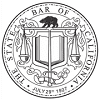Description:
Job Summary:The position of a legal research attorney is a challenging but highly fulfilling job, where the attorney works closely with trial court judicial officers and court administration to assist them with matters that come before the court. Research attorneys will routinely review court files, research the pertinent law, discuss the case with the judicial officers, draft a memorandum and/or tentative ruling, and attend hearings as requested by the judicial officer. They will often be assigned to special research and writing projects related to the work of the court. The work product prepared by a research attorney must be thorough, accurate, and often prepared under significant time constraints. A research attorney should be objective and adaptable, quickly adjusting to the individual needs of a diverse bench. They must also have strong ethics along with the ability to defer to the judicial officer regarding case dispositions.
Under general direction, the Legal Research Attorney classification assists the Superior Court Judicial Officers by researching legal issues before the Court and provides assistance, advice and counsel to the Court Executive Officer and the management team on legal aspects of administrative and operational issues.
Distinguishing Characteristics
This is a professional classification. Most duties and responsibilities are performed within established policies, procedures, standards, rules and laws. However, incumbents most often work independently and make decisions in the absence of easily applied rules. This class typically reports to the Court Executive Officer. Legal Research Attorney 1 positions are flexibly staffed to the Senior Legal Research level.
Legal Research Attorney 1: is the first working level in the Legal Research Attorney class series. Initially, the incumbent works under close supervision in performing research and drafting legal opinions for Judicial and Executive staff. Supervision may be provided by other Legal Research Attorney 2, Senior, or those acting in a lead or supervisory capacity for this purpose. As experience is gained, there is a greater independence of action. Incumbents may advance to the higher level after gaining experience and demonstrating proficiency, which meet the qualifications at the higher level.
Legal Research Attorney 2: is the experienced working level in the Legal Research Attorney class series. Incumbents work independently in performing legal research and drafting legal opinions for Judicial and Executive staff and must be able to respond within short time frames to Judicial Officers' queries on procedural and substantive issues during trails and retrial hearings.
Senior Legal Research Attorney: is the expert working level in the series. At this level, the incumbent is independent in performing the full range of complex Legal Research Attorney assignments and tasks.
Essential Functions:
The Court reserves the right to assign or reassign duties as required to achieve business and operational objectives. When assigned, all of the essential functions and duties listed below must be accomplished effectively, are standard, and may not be inclusive of all functions and duties that may be assigned. Essential functions and duties may include, but are not limited to the following:
- Research, analyze and interpret existing laws and ordinances, court decisions, pending legislation, and other legal authorities utilizing legal resources from computerized electronic and print media, including internet resources.
- Write proposed decisions for Superior Court Judicial Officers on matters currently before the court using computer word processing programs and manual methods.
- Advise Superior Court Judicial Officers on a variety of civil, criminal, and juvenile issues and proceedings; review and advise judges regarding petitions for Writs of Habeas Corpus and Writs of Mandate.
- Assist in drafting local Rules of Court as determined by operational needs and legal and regulatory requirements.
- Review Superior Court Appeals and brief the appellate judges with thorough appeal memoranda; review daily appellate reports for new developments in case law.
- Consult with and advise managers, supervisors, and other personnel regarding a wide variety of programs, policies, and regulations; review requests for court judgment after default for compliance with requirements.
- Cover duties of other Court Legal Research Attorneys during their absences, and assist with overflow of work.
- Attend staff and other work-related meetings, workshops, seminars, and other continuing education opportunities in order to stay informed of legal updates.
- Serve as a representative of the Court, displaying courtesy, tact, consideration and discretion in all interactions with other members of the Court community and with the public.
- Performs other duties as assigned.
Incumbents work under direction to perform most duties independently based on general policies, procedures and standards. However, incumbents frequently make decisions that may have multiple alternative solutions and may involve the occasional development of new techniques and procedures. Priorities are established by immediate user and court needs and can change frequently. Incumbents do not typically supervise other employees in the court but may have lead responsibility.
Knowledge of:
- Legal principles, precedents and their application;
- Legal research methods;
- Principles of civil, criminal, constitutional and administrative law and their application;
- Court procedures, rules of evidence and procedures;
- Laws applicable to operation of the court and related agencies, state and local laws and ordinances;
- Preparations of briefs and opinions;
- Legal terminology, court operations and courtroom procedures, etiquette and conventions;
- Correct English use, punctuation, spelling and grammar; and
- Personal computers and word processing software.
Ability to:
- Analyze legal principles and precedents and apply them to legal and administrative problems;
- Use legal reference works including case and statutory law from print and electronic media;
- Present statements of fact, law and argument clearly and logically in written and oral form;
- Work well under the pressure of ad hoc information requests, deadlines and multiple projects;
- Draft opinions, pleadings and rulings;
- Analyze legal principles and precedents and apply them to complex legal and administrative problems;
- Prepare clear and concise written reports for use in litigation;
- Establish and maintain effective working relationships with all those encountered in the course of work;
- Maintain flexibility in managing an unpredictable workday;
- Meet established deadlines in a timely manner;
- Protect clients' rights;
- Maintain confidentiality of court proceedings, documents and records and keep accurate records;
- Research, understand, interpret, explain and apply applicable policies, procedures, guides, rules and statutes;
- Exercise sound judgment in assisting parties and when communicating with the Court;
- Operate office equipment and personal computers, and use specified computer applications and programs; and
- Use tact and diplomacy when dealing with sensitive, complex and/or confidential issues and situations.
Qualifications:
Graduation from an accredited law school and a fully-licensed member of the California State Bar, in good standing;
AND
Legal Research Attorney 1*: One (1) year in the practice of law, which shall include substantial civil and/or criminal legal practice, or one (1) year of experience performing legal work in a court environment, while attending law school.
A Provisional Legal Research Attorney classification may be considered for candidates who do not meet the minimum qualifications of the LRA1 classification, but have graduated from an accredited law school by the time of hire and are applying to take, or have already passed, the California State Bar examination. Provisional positions will be limited in duration, and incumbents must pass the California State Bar exam within 12 months of hire to continue employment.
Legal Research Attorney 2*: Four (4) years in the practice of law, which shall include substantial civil and/or criminal legal practice, or three (3) years in the practice of law, including one (1) year in a court environment.
Senior Legal Research Attorney*: Seven (7) years in the practice of law, which shall include civil and/or criminal legal practice, or five (5) years in the practice of law, including two (2) years in a court environment.
Incumbents may advance to the higher level after gaining required experience and demonstrating proficiency.
Highly Desirable but Not Required Public law experience.
Supplemental Information:
Physical Requirements:
The physical demands and work environment characteristics described here are representative of those that must be met by an incumbent to successfully perform the essential functions of this job. Reasonable accommodations may be made to enable individuals with di





